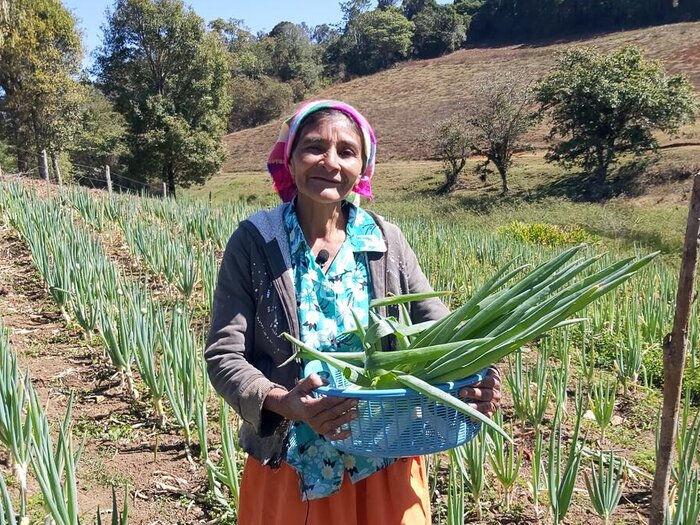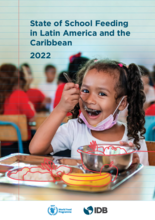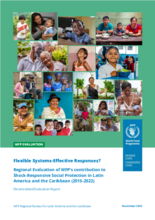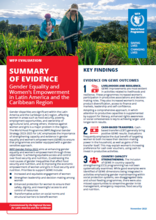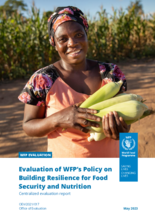Honduras
- 60%
- of the population lives in poverty
- US$2.3 billion
- cost of the double burden of malnutrition (undernutrition and obesity)
- 10.2 million
- population
Honduras is a low-middle-income country with more than 60 percent of the population living in poverty. Violence and frequent climate-related hazards, including flooding, drought and land degradation, disproportionally affect poor and vulnerable people.
Moderate economic growth, increasing levels of inequality, displacement and limited access to basic social services, are other factors leading to increased food insecurity and malnutrition.
Almost a fifth of children under 5 years of age are stunted (impaired growth due to malnutrition). Micronutrient deficiencies are also a serious concern.
The World Food Programme supports the government’s efforts to improve nutrition, enhance the resilience of smallholder farmers and assist families affected by rapid and slow-onset disasters.
What the World Food Programme is doing in Honduras
-
Emergency preparedness and response
-
WFP provides life-saving assistance and complements the government's response to unexpected and slow-onset disasters, by providing food assistance (cash-based transfers and in-kind) and strengthening supply chain management, emergency preparedness and response capacity. WFP helps the government to reinforce its emergency planning and preparedness capacity. WFP strengthens food logistics and coordination capacity, promoting a sustainable supply chain that will operate effectively in the aftermath of crises.
-
Resilience building
-
Through a food systems approach, WFP supports rural and urban households and communities by promoting capacity-strengthening initiatives such as training in entrepreneurship and vocational skills, especially in young people, to help diversify their income sources and acquire skills, financial services, and products they need to start and manage micro-businesses. WFP seeks to empower smallholder farmers, particularly women, and their organizations to achieve sustainable, climate-resilient livelihoods and to better manage crises, which in turn helps to discourage migration. WFP provides food and technical assistance to vulnerable urban populations. We also provide support to social protection systems and local actors, such as local governments and community-based organizations to promote employment- generation programmes and increase the incomes of vulnerable urban populations, thereby contributing to their food security and resilience to external shocks.
-
School meals
-
WFP supports the government’s national school meals programme, combining basic dry rations with complementary fresh rations that promote home-grown school feeding.
-
Nutrition
-
WFP supports the government’s efforts to improve nutrition during the “first 1,000 days” between conception and a child’s second birthday. To prevent malnutrition among children aged between 6 and 23 months, pregnant and breastfeeding women, including indigenous and Afro-descendant communities, WFP supports authorities and communities through the distribution of CSB+ and CSB++.We also organize workshops in local health centres to improve eating habits and strengthen the skills of medical personnel. WFP assists adolescents and young people with rations, to prevent anaemia.
-
Social protection
-
WFP supports the Government in its effort to improve and strengthen national social protection systems and policies, especially those oriented towards achieving food and nutrition security, such as the national school feeding programme.
-
Service provision
-
WFP provides services related to areas including cash transfers, logistics and procurement to government agencies, humanitarian network partners and other organizations.
Honduras news releases
Go to pagePartners and donors
Find out more about the state of food security in Honduras
Visit the food security analysis pageOperations in Honduras
Contacts
Office
Colonia Castaños Sur, Bloque 6, Casa No. 7 Paseo Virgilio Zelaya Rubí. Apartado Postal No. 17. Tegucigalpa M.D.C., Honduras
Honduras

